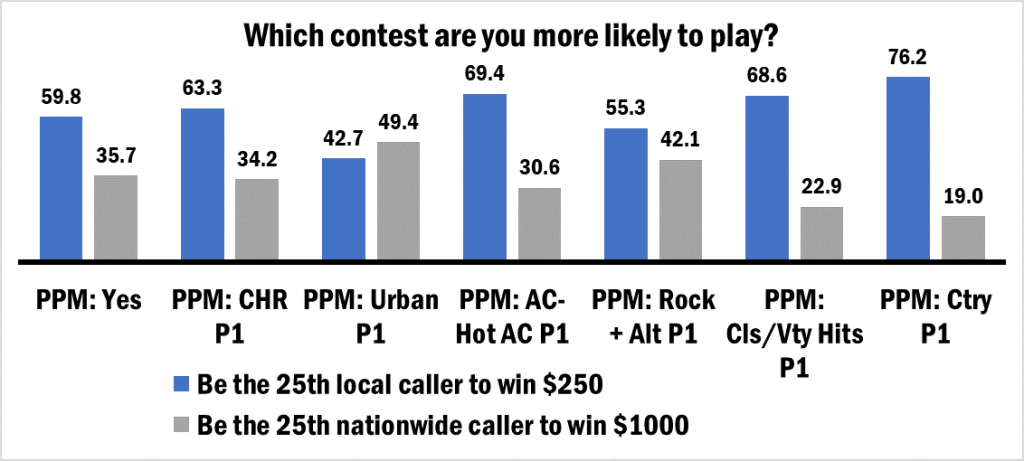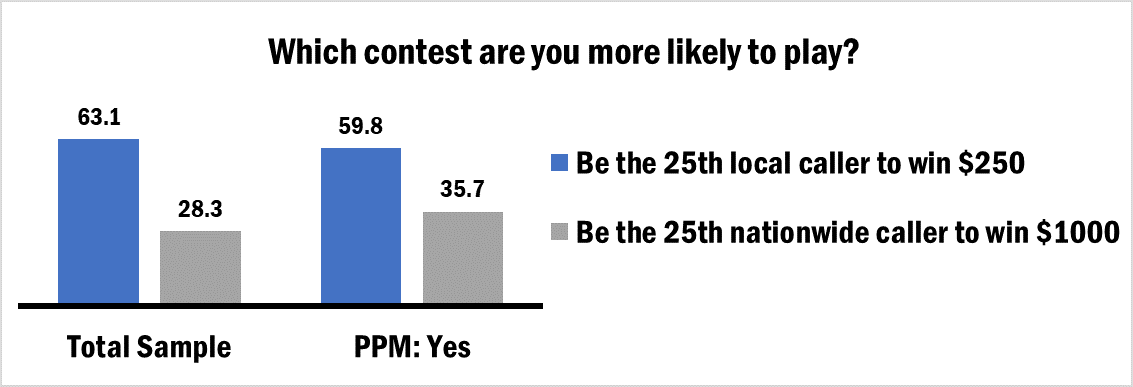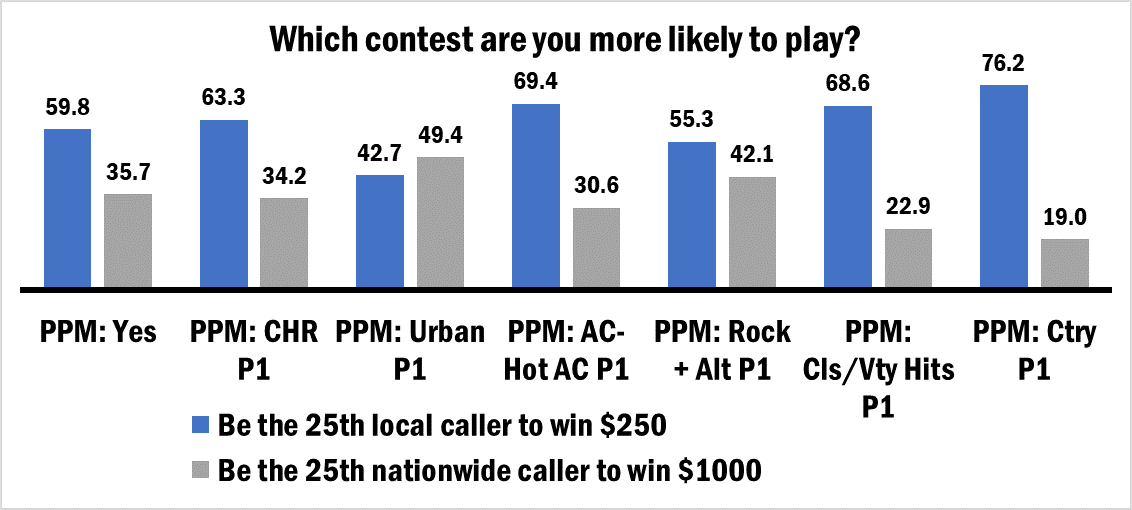What’s Better: Bigger National Prize or Smaller Local Prize?

We’ve just completed fielding the latest NuVoodoo Ratings Prospects Study, looking again for advantages our clients can exploit to get higher ratings. Twice a year we go into the roster of PPM markets and interview over 3000 respondents, ages 14-54, to learn more about those who are most likely to say “yes” to the opportunity to wear a meter.
It’s our 11th Ratings Prospects Study in just seven years, with 3,041 respondents this time. We’ll be writing about some of the top-level findings of the new study here, but we’ll save the juiciest insights to share with clients: to guide the next-generation marketing programs we’re doing for them and pass actionable intelligence on to their programming teams.
Among the new questions we probed this time around was a choice between two hypothetical contests. One option is a contest where the 25th local caller wins $250. The other option is a contest where the 25th nationwide caller wins $1000. It’s the choice between the local contest, with a smaller prize, or the group contest, with a larger prize.

Overall, the smaller prize – against a smaller, local, entry pool – beats the larger, nationwide prize by better than 2:1. But, when we narrow the sample to those who are most likely to participate in a PPM-type methodology, the gap also narrows – with a higher percentage lured in by the bigger prize.

When we add music format P1 lenses to the PPM-complaint filter, we see that not all format P1’s react the same. Urban P1’s favor the larger prize. Our grouping of Rock and Alt P1’s (we had to combine to have enough respondents across the two formats after the PPM filter was imposed) slightly favored the local option. Another grouping, the “library formats,” Classic Hits and Classic Rock and Variety Hits P1’s, came down very strongly in favor of the local contest. Country P1’s voted even more strongly in favor of local contest over national.
NuVoodoo’s Marketing EVP, Mike O’Connor, reacted strongly when he saw these latest data, “Couple these results with our past study intel, which has repeatedly unmasked a majority perception that radio stations rig their on-air contests, and you have the perfect-storm opportunity to reposition national contests as fake news.”
Contesting is a proven tactic to help boost ratings. If it’s a choice between doing a group contest or no contest at all, we’ll advise clients to run the group contest. In the words of Teddy Roosevelt, “Do what you can, with what you have, where you are.” But, these data show the significant preference of most PPM-complaint format P1 groups for a local contest – even if it means a smaller prize.
Looking forward to seeing clients and colleagues in Nashville this week at the Country Radio Seminar, February 5-7. Hope to see you there!




